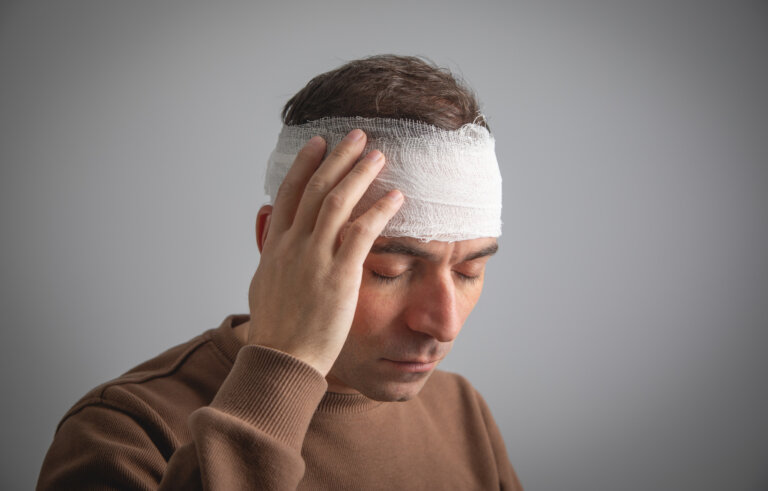Introduction to Concussions
A concussion is a type of traumatic brain injury (TBI) that occurs when a sudden impact or force causes the brain to move and sustain damage within the skull. This type of movement can disrupt normal brain function and cause symptoms such as headaches, dizziness, confusion, and memory problems. While some concussions are relatively mild and can heal with rest, others can have lasting effects on cognitive and physical health. If someone exhibits signs of a concussion, prompt medical attention is necessary to reduce their risk of complications.
How Common Are Concussions?
Concussions are unfortunately common in New York and across the U.S. According to the NYS Department of Health, nearly 157 traumatic brain injuries happen every day, resulting in a high number of emergency department visits, hospitalizations, and deaths. New York also records over 2,200 deaths and 17,000 hospitalizations annually due to TBIs. Approximately 38,000 people visit emergency departments each year due to TBI incidents. TBI risk is especially high for young children, young adults, and older adults. Additionally, men are approximately twice as likely to require hospitalization for TBIs as women. Falls, motor vehicle accidents, and assaults are consistently the most frequent causes of TBIs.
Concussion Symptoms
Concussions can feel different for each person, depending on the nature and severity of the injury. For some, it might feel like a mild headache or dizziness that passes within a few days. Others experience more intense symptoms that make daily activities challenging. Each person’s experience varies, so any of the following symptoms should be taken seriously and assessed by a medical professional after a known or suspected head injury:
Somatic (Physical) Symptoms
Concussions often cause headaches, nausea, and vomiting. Many patients also experience dizziness and balance issues. Sensitivities to light or noise, along with blurred or double vision, are also common.
Cognitive Symptoms
People with concussions often have difficulty with memory and concentration. Patients often describe feeling slowed down or “foggy” and experience challenges in processing new information.
Sleep Symptoms
Concussions can cause difficulty falling or staying asleep. Some people sleep more or less than usual or feel unusually tired or drowsy during the day.
Emotional Symptoms
Emotional changes are common after a concussion. People might feel irritable or experience mood swings. Anxiety or nervousness often increase, and some might feel sudden sadness or depression.
Concussion Symptoms in Babies and Young Children
Infants and toddlers may not express concussion symptoms like older children. Watch for excessive crying, irritability, vomiting, balance issues, drowsiness, or changes in eating, sleeping, or play behavior.
What Does a Concussion Feel Like?
A concussion can cause dizziness, headaches, nausea, and confusion. Many people experience sensitivity to light or noise, fatigue, or trouble concentrating. Some describe feeling “foggy” or disoriented, while others may have memory gaps or mood changes. Symptoms can be immediate or develop hours after the injury.

Causes and Risk Factors of Concussions
What Causes Concussions?
A concussion can happen anytime a forceful blow or sudden movement causes the brain to move rapidly inside the skull, which can stretch or damage brain cells. Common causes of concussions include falls, car wrecks, sports accidents, and physical assaults. Even a seemingly mild impact can cause a concussion if the force is strong enough to affect the brain. Contact sports like football, hockey, and soccer significantly increase the likelihood of concussions, especially if players don’t have proper protective gear.
What Are the Risk Factors?
Several factors can increase a person’s risk of experiencing a concussion. Young children, teenagers, and older adults face a higher risk due to age-related vulnerabilities. Young children often lack awareness of dangers, while many older adults have balance issues that increase their likelihood of falls. People who participate in high-impact sports, especially those that involve body contact, also have a higher risk of concussions. Additionally, men are almost twice as likely as women to be hospitalized for TBIs, partly due to their higher rates of participation in certain contact sports and physical jobs.
Concussion Diagnosis and Assessment
How Do You Know If You Have a Concussion?
If you suspect you have a concussion, monitor yourself for symptoms like headaches, dizziness, confusion, or sensitivity to light and sound. You might feel foggy or have trouble concentrating. Physical symptoms, such as nausea or balance issues, often accompany concussions. These signs can appear immediately or develop hours or days after the injury. If you experience any of these symptoms after a blow or sudden jolt to the head, consider seeing a doctor for an evaluation.
How Is a Concussion Diagnosed?
Doctors diagnose concussions by examining symptoms, medical history, and the specifics of the injury. They might conduct neurological exams to check vision, balance, coordination, and reflexes. Sometimes, they use cognitive tests to assess memory, concentration, and mental processing speed. For severe cases or to rule out other types of brain injuries, a doctor might order imaging tests like CT scans or MRIs. However, these tests rarely show evidence of concussions, as these injuries often affect brain function rather than structure.
Which Questions Should I Ask My Doctor?
When visiting your doctor, consider asking specific questions to understand your condition and treatment. Ask which symptoms you should watch for in the coming days. Find out what activities you should avoid while recovering and how to manage symptoms like headaches or trouble sleeping. Discussing these details with your doctor can help you take the right steps toward a safe recovery.
Concussion Severity
Doctors classify concussions into three grades based on severity. Each of these grades represents a different level of symptoms and recovery needs:
Grade 1
Symptoms of Grade 1 concussions are mild and usually last for less than 15 minutes. There is no loss of consciousness, and most people feel fine within a few hours or days. While Grade 1 concussions are the least severe, they still require rest and time away from activities that could lead to a second injury.
Grade 2
A Grade 2 concussion involves more noticeable symptoms that last longer than 15 minutes. People with Grade 2 concussions often experience persistent confusion or disorientation. Although there is no loss of consciousness with a Grade 2 concussion, the symptoms tend to be more disruptive, and recovery can take several days or even weeks. Medical evaluations are necessary to monitor symptoms and ensure proper healing after Grade 2 concussions.
Grade 3
A Grade 3 concussion is the most severe and typically involves a loss of consciousness, even if only for a few seconds. Symptoms are intense and often include memory loss, confusion, and physical issues like dizziness or nausea. A Grade 3 concussion requires immediate medical care, and recovery often involves a longer period of rest and careful monitoring by healthcare professionals.

How Do You Know if a Concussion Is Major or Minor?
Determining whether a concussion is major or minor depends on the symptoms, their duration, and any loss of consciousness. Doctors use these signs to assess TBI severity and decide on the best course of action.
Can a Mild Concussion Heal on Its Own?
Mild concussions, especially those classified as Grade 1, often heal on their own with sufficient rest and limited activity. However, even mild concussions require professional attention to assess, prevent further injury, and ensure proper treatment.
Concussion Treatment and Management
How Do You Treat a Concussion?
Doctors treat concussions primarily by advising a return to activity guidelines, monitoring symptoms, and providing treatment based on the International Consensus Statement on concussions.
Managing a Concussion
Resting the brain is essential, which means taking a break from physical activities, sports, and even intense mental tasks like reading or screen time. For the first few days, your doctor might recommend relative rest, gradually allowing you to resume light activities based on how you feel. Complete rest is generally no longer recommended after a concussion as this can slow your recovery process. If symptoms persist, your doctor might suggest various therapies or follow-up visits to ensure you’re recovering properly.
What Should You Not Do After a Concussion?
After a concussion, avoid physical exertion, screen time, and activities requiring focus, as they can worsen symptoms. Do not ignore signs like dizziness or confusion, and avoid alcohol or medication without a doctor’s approval. Most importantly, don’t rush back to sports or work without medical clearance. Focus on rest and follow your doctor’s advice to speed up your recovery.
Can You Sleep With a Concussion?
Sleeping with a concussion is generally safe and encouraged, as rest helps the brain heal. However, your provider might advise that someone check on you periodically during the first 24 hours, especially if your symptoms are severe.
Can You Take Medication With a Concussion?
For pain relief, doctors usually recommend over-the-counter (OTC) medications like acetaminophen, which is gentler on the brain than options like ibuprofen. Avoiding certain medications can reduce the risk of side effects or complications, so it’s best to consult your doctor about which pain relievers are safe.
Concussion Recovery and Duration
How Long Does a Concussion Last?
Concussion recovery times vary depending on factors like injury severity, the patient’s age, overall health, and other comorbid conditions. Mild concussions might heal within a few days to a week. Many people feel back to normal after about a week or two, though it’s important to rest and limit activities that could worsen symptoms during this time.
For more moderate concussions, recovery could take several weeks. During this period, it’s common to experience lingering symptoms like headaches or difficulty concentrating. Doctors often recommend gradually returning to normal activities based on symptom improvement.
Severe concussions sometimes require weeks or even months to heal fully. The recovery process for these concussions usually involves close monitoring, follow-up visits, and possibly rehabilitative therapies. Each concussion recovery is unique, so it’s essential to listen to your body and follow your doctor’s advice. Returning to normal activities too quickly can increase the risk of re-injury and extend the healing process.

Potential Complications of a Concussion
A concussion can lead to serious complications, especially if your symptoms haven’t fully resolved before you return to regular activities.
Post Concussion Syndrome
One potential complication is post-concussion syndrome, where symptoms like headaches, dizziness, and difficulty concentrating continue for weeks or even months after the initial injury. This extended recovery can interfere with daily life and make it harder to work or stay active. Doctors might recommend therapies or medications to manage these persistent symptoms and support a gradual return to normal routines.
Second Impact Syndrome
Another potentially severe complication is second impact syndrome, which can happen if a person experiences another concussion before the first one has fully healed. This second impact, even if minor, can cause severe brain swelling and lead to dangerous outcomes like permanent brain damage or, in rare cases, death. Young athletes face a high risk for second impact syndrome, so it’s essential for them to avoid returning to physical activities until a doctor clears their return to sport.
Concussion Prevention
Preventing concussions involves taking steps to reduce the risk of head injuries in everyday activities and sports. Wearing proper protective gear is one of the most effective ways to prevent concussions. Helmets, for example, provide essential protection during contact sports like football, hockey, and cycling. When selecting a helmet, check to see if it fits properly and meets safety standards to ensure it offers the best protection.
Practicing safe habits at home, work, and school also plays an important role in prevention. Consider installing grab bars and using non-slip mats in bathrooms to prevent falls, especially for older adults. For children, check playgrounds for soft surfaces like rubber mulch that can cushion falls and reduce the chance of head injuries.
In sports, coaches and players should follow rules designed to minimize high-risk behaviors, like aggressive tackling or improper techniques. Educating athletes about concussion risks and symptoms can help them recognize injuries early and encourage them to report any symptoms. Additionally, maintaining good physical health and strengthening neck muscles can provide extra protection during sudden impacts.
When to Seek Medical Attention
Knowing when to seek medical attention after a head injury can make a significant difference in recovery. Watch for signs that suggest a possible concussion or more severe brain injury after any impact to the head. If you experience a headache that worsens, repeated vomiting, or dizziness that doesn’t go away, you should see a doctor as soon as possible. Confusion, slurred speech, or noticeable changes in behavior also indicate a need for medical evaluation.
When Should You Go to the Emergency Room?
Certain symptoms indicate that emergency care is necessary. If you lose consciousness, even briefly, go to the emergency room right away. Seizures, extreme drowsiness, and difficulty waking up are also serious warning signs that require urgent medical attention. Additionally, if you notice clear fluid or blood coming from the nose or ears, this could suggest a severe injury, and you should head to the ER immediately. Parents should closely monitor children and take them to the doctor immediately if they seem unusually irritable, have trouble walking, or stop responding as they normally would.
Contact Our Concussion Specialists Today to Discuss Treatment Options
If you’re dealing with an acute concussion or pain that disrupts your daily life, Long Island Spine Rehabilitation Medicine is here to help you find relief and get back to feeling like yourself. Our dedicated team of doctors will work with you to create a plan that supports your recovery and long-term well-being. Reach out to us today to schedule a consultation at one of our convenient Long Island locations.

